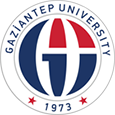
University of Bologna:
The University of Bologna was founded in 1088 and is considered to be the oldest university in Western Europe. Nowadays, it still remains one of the most important institutions of higher education across Europe with around 85.000 enrolled students, 11 Schools, 33 research departments, 3000 academics, and 3000 administrative staff. University of Bologna is a comprehensive Higher Education Institution located in the Emilia-Romagna region, in the centre-north of Italy. It is located in 5 Campuses, the main one being in the city of Bologna and 4 additional campuses are located in the Romagna region, in the city of Forlì, Cesena, Rimini, and Ravenna.
University of Bologna is today the most internationalised of all Italian universities. The number of foreign students regularly enrolled is around 6000, while another 2000 arrive every year on international mobility programmes such as LLP/Erasmus, Overseas, and Erasmus Mundus Action II. The number of students of the University of Bologna who go abroad on exchange programmes or on study grants is more than 2,000.
The academic offer of the University of Bologna is composed by around 100 Undergraduate programmes, more than 100 Master programmes, 25 of which are completely taught in English or in another foreign language, and more than 90 Doctoral Programmes.
The University of Bologna, based on the experience and results obtained in the period 2007-2013 in the internationalization of education, has recently developed its new Internationalization strategy named “ALMA GLOBAL 2020”, which is also summarized in the ECHE 2014-2020. The medium term strategy identifies a list of activities and targets which are strictly correlated with the objectives of this project such as:
- Learning Mobility for study and placement (target: incoming and outgoing students at all cycles; mobility for placements, especially at 2nd cycle, International degree seeking students, especially at 2nd and 3rd cycle; International and local students enrolled in Joint Programmes especially at 2nd and 3rd cycle);
- Teaching and technical staff mobility and international recruiting (target: academic and administrative staff of different units to enhance their internationalization competence and foster the involvement in the international agenda as a basic requirement for modernization and for external outreach);
- Mobility windows: development of study programmes containing mobility windows open to a wide range of activities abroad aimed to the achievement of well defined learning outcomes;
- Summer Schools and Intensive Programmes (target: perfect integration of SS and IP into existing BA, MA and PhD Programmes)
- Joint Programmes and Programmes with enhanced International outlook at BA, MA, PhD level (main target 2nd and 3rd cycle).
Wider expertise in the development and management of JPs is internationally recognized to UNIBO. JPs continue to be a core tool for internationalisation within ALMA GLOBAL 2020;
- Development of innovative multilateral projects: Fostering the participation in multilateral projects both at academic and organizational level to enhance the quality of the education and research and their translation into practice and impact, to strengthen the cooperation with industries, to remove barrier to mobility, to improve services and provision for disadvantaged groups. Capacity building and collaboration with civil society, governmental actors and NGOs will be prompted.
Specifically, the Department of Psychology of the University of Bologna will be involved in this project. The Department of Psychology consists of over 60 staff members representing all the different psychology fields (general psychology, neuropsychology, psychometrics, developmental and educational psychology, social psychology, work and organizational psychology, psychodynamic, and clinical psychology). The Department of Psychology is among the top departments within the University of Bologna in terms of scientific evaluation and research impact as indicated by international rankings such as the QS University Ranking by Subject and the CWTS Leiden Ranking based on bibliometric indicators (e.g., Web of Science 2009-2012). Importantly, the Department of Psychology is also consistently rated as the best Italian department of psychology in terms of teaching quality.
For more infomation please visit https://www.unibo.it/en

